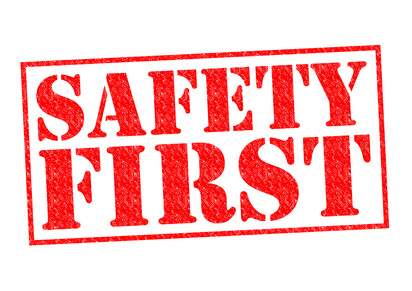Tough Mountaineering- Safety Briefing

The most important thing is that you and the team you are with return safely from your mountaineering trip!
There are a few risks associated with low level mountaineering but provided you do your research and go carefully these risks can be minimised.
KNOW YOUR ROUTE
- Research your route before you go
- Always have a spare map/compass/GPS incase the first one is lost/breaks
- Consider back-up routes or emergency routes back in case of difficulties
- Always ensure you know how to read your map and/or use your GPS correctly
- Ensure everyone in the group knows where you are going
- Always leave information back home of where you will be going and when you expect to be back
Getting to your peak and back again safely is vital
WATCH THE WEATHER
- Check weather reports before you go
- Always carry enough clothing and equipment for all the possible weathers you could encounter
- If the weather turns, do not feel compelled to press on, it's ok to turn back
- Rain/snow/ice can make paths, rocks and slopes slippery
- Always be aware of how rainfall can affect river levels and currents
- Protect yourself from cold/wind/rain/snow/sunshine ALL the time
Weather on mountains can be unpredictable and change quickly
KNOW YOUR LIMITS
- Never a attempt something you have never done before unless with someone experienced
- Always listen to your body- if something hurts it is telling you something is not right
- Exhaustion can be a problem, take plenty of rests and do not push yourself too hard
- If leading a group, take time to understand your teams abilities and needs
- If you are not sure you can make it- don't attempt it. Train until you can!
You need to understand and be honest about your capabilities
EQUIPMENT
- Always understand how your equipment works, practice before you go
- Check all equipment (especially safety equipment) before and after you go
- Take spares of vital kit/clothing, just in case
- Be prepared for unexpected weather, dress appropriately and have additional clothing with you
- Keep packs as light as possible, don't carry more than is necessary
Your clothing and equipment will keep you safe
Professional Training: Nothing can compare to professional training delivered by qualified trainers who can carefully guide you through how to safely learn and practice the required techniques in a controlled environment.
Medical Advice: Before taking part in a new sport or activity you should consult your doctor or other healthcare worker to identify any potential risks to your wellbeing. This is particularly important if you are pregnant, elderly, suffered previous injuries, suffering from a long term medical condition, or disabled. Whilst these conditions do not preclude you from taking part in most activities, getting advise can help you adapt to suit your individual needs.

